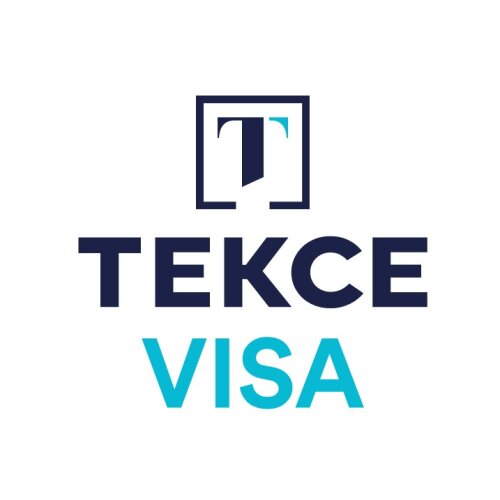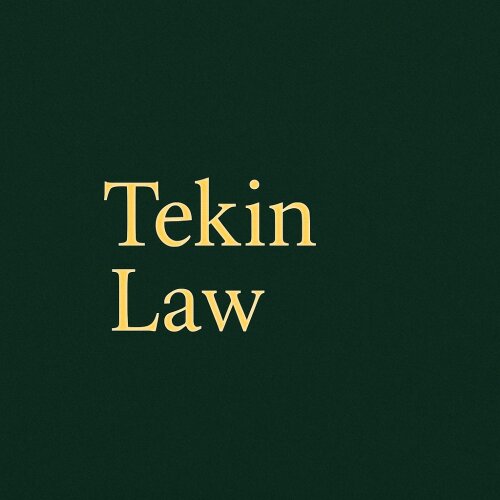Best Conveyancing Lawyers in Istanbul
Share your needs with us, get contacted by law firms.
Free. Takes 2 min.
Free Guide to Hiring a Real Estate Lawyer
List of the best lawyers in Istanbul, Turkey
Legal guides written by Tekin Law Firm:
- Arbitration in Turkey
About Conveyancing Law in Istanbul, Turkey
Conveyancing is the legal process of transferring ownership of real estate property from one person or entity to another. In Istanbul, Turkey, conveyancing involves several legal and administrative steps designed to protect the rights of both buyers and sellers. The process encompasses the preparation and review of documents, conducting due diligence on the title and property status, ensuring all taxes and fees are cleared, and registering the transfer with the local land registry (Tapu Office). Due to Istanbul's vibrant real estate market, the demand for conveyancing services is high, particularly among both Turkish citizens and foreign investors.
Why You May Need a Lawyer
Engaging a lawyer for conveyancing in Istanbul can save you time, money, and unexpected challenges. Common situations where legal advice is crucial include:
- Buying or selling property, especially for foreigners unfamiliar with Turkish regulations
- Dealing with inheritance property transfers
- Resolving disputes related to unclear title deeds, encumbrances, mortgages, or unpaid taxes
- Participating in complex deals involving multiple parties, commercial properties, or high-value assets
- Reviewing draft contracts and ensuring fair terms
- Obtaining necessary permits for specific property use or development
- Preventing or navigating fraudulent transactions and scams
- Facilitating communication with notaries, public offices, and the Tapu Office
An experienced lawyer ensures all legal aspects are covered, limits your risks, and offers peace of mind during the transaction.
Local Laws Overview
Istanbul's conveyancing procedures are governed by the national Turkish Civil Code, the Land Registry Law, and various local regulations. Key aspects include:
- Title Deeds (Tapu): The official transfer of ownership must be registered at the Land Registry Office. The Tapu is the only legally recognized property ownership document in Turkey.
- Due Diligence: Before any transfer, it is essential to check whether the property is free of encumbrances, debts, zoning issues, or legal disputes.
- Foreign Ownership: Non-Turkish citizens can purchase property in Turkey, but there are restrictions based on country of origin and security zones. Additional approvals and documentation may be required.
- Notarized Agreements: Sales contracts often need to be notarized, especially if there will be a delay before official registration at the Tapu Office.
- Taxes and Fees: Both buyer and seller must pay specific taxes (such as property transfer tax, usually at 4 percent of the declared value) and administrative fees during the transaction.
- Municipal Approval: Some property transfers, especially new developments or changes of use, require approval from local municipal authorities.
- Power of Attorney: Foreign buyers or absentee sellers often appoint lawyers or trusted individuals to represent them with a notarized power of attorney.
Frequently Asked Questions
What documents are required to buy or sell property in Istanbul?
The key documents include valid identification or passport, Turkish tax number, property title deed (Tapu), earthquake insurance policy (DASK), proof of payment for fees and taxes, and in some cases, a military clearance for foreign buyers.
Can foreigners buy real estate in Istanbul?
Yes, foreigners from many countries are permitted to buy property in Istanbul, although restrictions apply to certain nationalities and areas. Legal advice is highly recommended to navigate these requirements.
Is it necessary to use a lawyer for conveyancing in Istanbul?
While not legally required, it is strongly advisable to engage a lawyer to protect your interests, review documents, conduct due diligence, and ensure the transaction runs smoothly.
How long does the conveyancing process take?
The typical process, once all documents are in order, takes between one and four weeks. Delays can occur due to missing paperwork, government approvals, or title issues.
What are the main risks involved in buying property in Istanbul?
Risks include undisclosed debts or mortgages on the property, fraudulent deals, title disputes, and zoning or planning violations. Legal due diligence is key to avoiding these problems.
Do both buyer and seller need to be present at the Tapu Office?
Usually, both parties must appear in person for the final transfer unless they have authorized a legal representative through a notarized power of attorney.
What taxes and fees are involved in a property transfer?
The primary costs include the property transfer tax (usually 4 percent of the declared property value), notary fees, Tapu registration fees, and potential legal and agency costs.
What is the Tapu and why is it important?
The Tapu is the official title deed and serves as the conclusive proof of property ownership. Without the Tapu, legal ownership cannot be established.
How is payment handled during the purchase?
Payments are often completed via bank transfers for transparency. An escrow service or lawyer can hold funds securely until the Tapu transfer is finalized.
Can a property be sold if it has outstanding debts or mortgages?
It is possible but not advised until all financial obligations, taxes, and liens are cleared. The new owner may become responsible for outstanding debts if not resolved before the transfer.
Additional Resources
Several local authorities and organizations offer reliable information and support for those dealing with conveyancing in Istanbul:
- Istanbul Land Registry (Tapu ve Kadastro Müdürlüğü): Handles property transfers, records, and title deed issues.
- Ministry of Environment, Urbanization, and Climate Change: Oversees real estate regulations, planning, and development standards.
- Bar Association of Istanbul: Offers lawyer directories and public legal information.
- Istanbul Municipality: Provides information on property taxes, planning, and municipal permissions.
- Notaries Union of Turkey: Information about notary services and notarized contracts.
Next Steps
If you are considering buying, selling, or transferring property in Istanbul, your next steps are:
- Gather all relevant documents: including identification, Tapu, proof of tax number, and existing contracts.
- Consult a qualified conveyancing lawyer: to review your situation, advise on risks, and manage the legal aspects of your transaction.
- Conduct property and title checks: ensure there are no encumbrances, debts, or legal disputes affecting the property.
- Contact the Land Registry (Tapu Office): to understand formal requirements and schedule appointments as needed.
- Plan for all financial aspects: including taxes, fees, and secure payment methods.
- Engage notary and translation services: if required, especially for foreigners or if power of attorney is needed.
Taking these steps early will help ensure a smooth and legally secure property transaction in Istanbul.
Lawzana helps you find the best lawyers and law firms in Istanbul through a curated and pre-screened list of qualified legal professionals. Our platform offers rankings and detailed profiles of attorneys and law firms, allowing you to compare based on practice areas, including Conveyancing, experience, and client feedback.
Each profile includes a description of the firm's areas of practice, client reviews, team members and partners, year of establishment, spoken languages, office locations, contact information, social media presence, and any published articles or resources. Most firms on our platform speak English and are experienced in both local and international legal matters.
Get a quote from top-rated law firms in Istanbul, Turkey — quickly, securely, and without unnecessary hassle.
Disclaimer:
The information provided on this page is for general informational purposes only and does not constitute legal advice. While we strive to ensure the accuracy and relevance of the content, legal information may change over time, and interpretations of the law can vary. You should always consult with a qualified legal professional for advice specific to your situation.
We disclaim all liability for actions taken or not taken based on the content of this page. If you believe any information is incorrect or outdated, please contact us, and we will review and update it where appropriate.

















